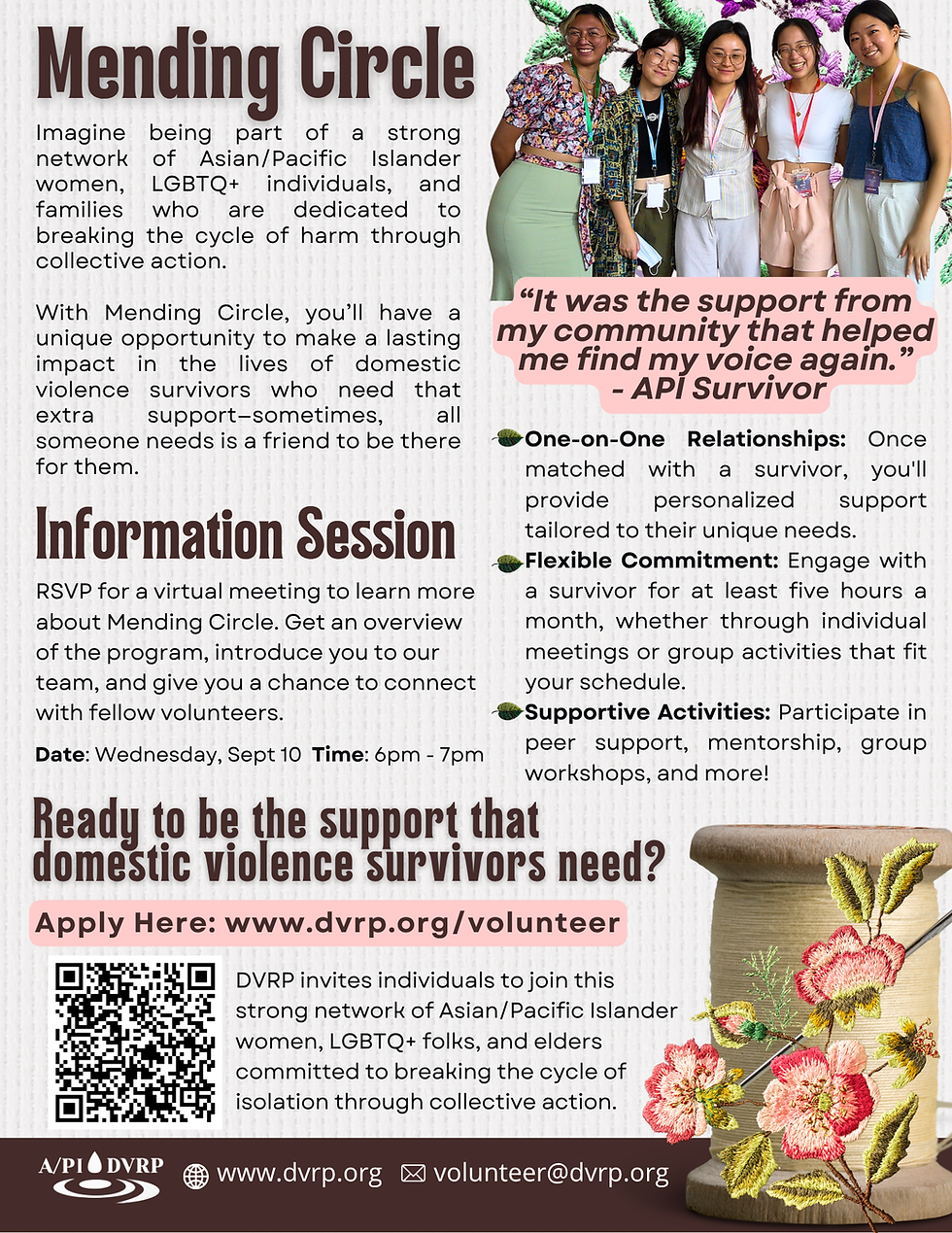Meeting the Transportation Needs of Survivors
- DVRP Admin

- Jan 30, 2023
- 2 min read
On January 5, 2023 DVRP hosted a community listening session on “Understanding the Transportation Needs” of our clients.
Community listening sessions are an integral part of the survivor-centered approach that DVRP takes. To us, it is critical to have the feedback and understand the needs of our community first hand. In the past, DVRP has hosted listening sessions on understanding access to health care providers, the impact of COVID-19 and Anti-Asian violence, and about economic justice. The listening session hosted was rooted in understanding the transportation needs of our clients and to understand the efficacy of the Uber rides DVRP has been providing survivors.

Survivors need safe, fast, cost-effective, and reliable transportation in the process of rebuilding their lives. At DVRP we understand how healing is non-linear and how violence can impact someone years after they have been through it. Transportation can be a source of severe stress as it can be a barrier in being able to meet needs. As we work with predominantly immigrant clients who are new to the country, many survivors don’t have a car of their own or know how to drive. Thus, they most often rely on public transportation. Almost all survivors who attended our listening session shared that public transportation isn’t a reliable form of transportation. They cited that often live in areas where there is low connectivity – for instance metro stops are often a 20-minute walk and buses aren’t reliable, especially during the weekends. We also heard that because of the lack of connectivity, survivors often have to take even more time to walk to destinations or wait for the bus, which hinders in their ability to do all the tasks they have intended to do and adds to their levels of exhaustion. Furthermore, several survivors also noted that public transportation often doesn’t feel safe and can trigger symptoms of PTSD.
Since May 2022, DVRP has been collaborating with Uber to be able to offer survivors safe rides. The survivors who attended our listening session have received Uber rides from DVRP. Survivors have used rides in a myriad of ways from using them to attend court hearings and appointments with lawyers, to using them for in a medical emergency, to going to job interviews. Survivors have also used the rides while they have felt unsafe because of continued stalking of an abuser or when they have struggled with their mental health. A survivor also noted that since the Uber rides are provided by DVRP, they feel even safer knowing that a case manager knows their location.
While we understand that receiving Uber rides alone doesn’t eradicate the long-term needs of better transportation & the systemic inequalities that our survivors need to face while accessing safer and reliable forms of transportation, we have learnt that the Uber rides survivors have received from DVRP have been a crucial part in their healing and rebuilding journey. We are deeply grateful for the collaboration we have with Uber to fill in the gap in transportation needs that survivors have.
The following are some responses we received during the community listening
session:







Comments